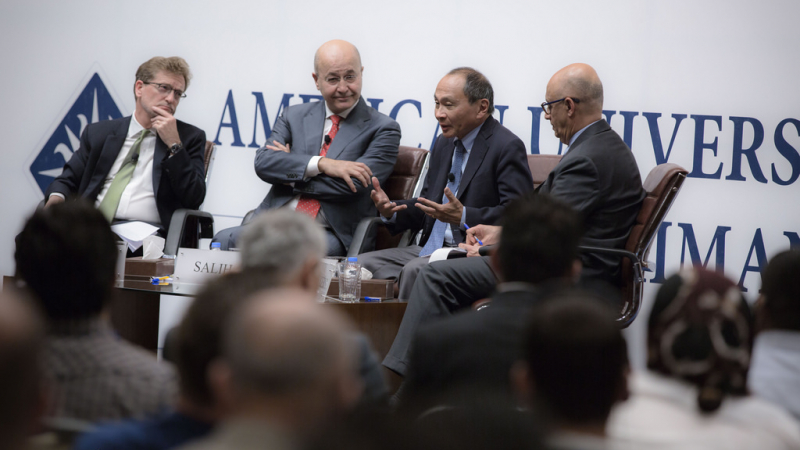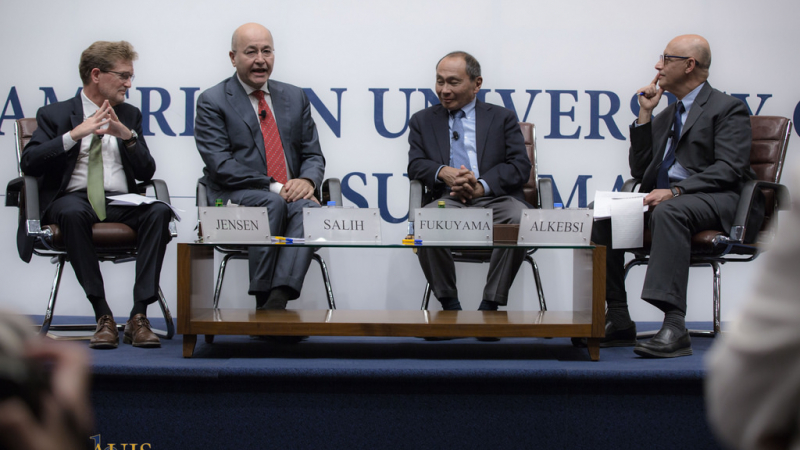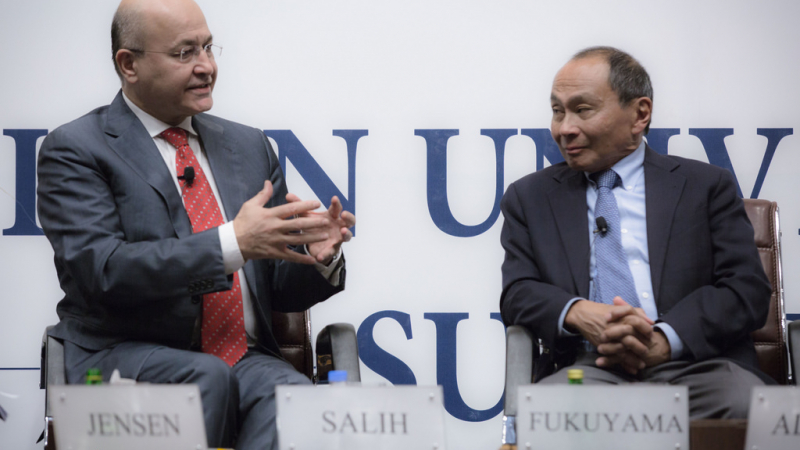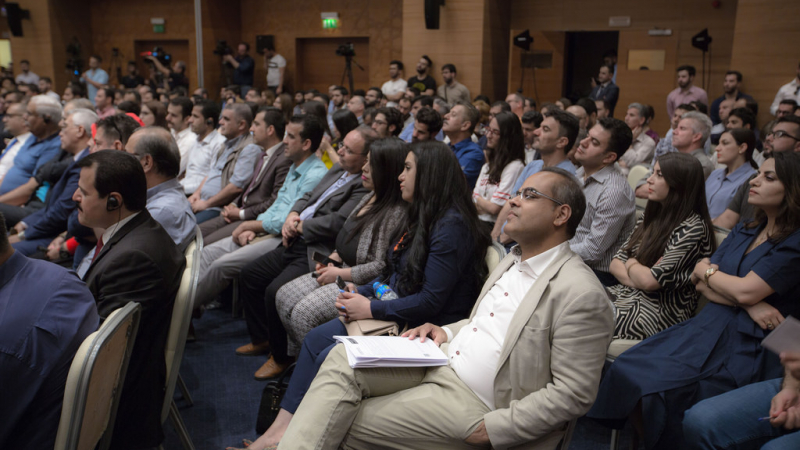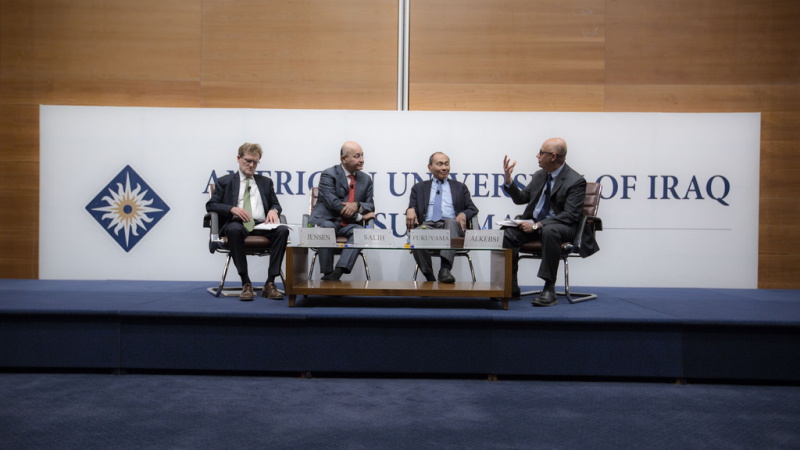On August 30, 2018, IRIS hosted Francis Fukuyama to discuss the trends and developments discussed in his upcoming book, Identity: The Demand for Dignity and the Politics of Resentment and recent piece in Foreign Affairs, “Against Identity Politics: The New Tribalism and the Crisis of Democracy.” The panel involved a discussion with Dr. Fukuyama, the Olivier Nomellini Senior Fellow at the Freeman Spogli Institute for International Studies (FSI) at Stanford University, Dr. Barham Salih, founder and trustee at the American University of Iraq, Sulaimani (AUIS), Abdulwahab Alkebsi, the Managing Director for Programs at the Center for International Private Enterprise (CIPE), and Erik Jensen, Director of the Rule of Law program at Stanford.
The discussion began with an overview of identity politics both in the U.S. and globally. According to Fukuyama, identity-based politics are rooted in an ideology held by individuals whose disparaged dignity prompts them to align their policy preferences, party affiliations, and thought processes with a particular identity group. This thinking can have dangerous effects on society, as a broad range of issues are evaluated and decided on the basis of specific identities.
Responding to Salih’s question about the emergence of a new tribalism rooted in an overemphasis of identity politics vis-a-vis globalization, technology, and economic opportunity, Fukuyama responded that economists view the latter trends very positively, as they contribute to overall global wealth. He noted that global output, for example, quadrupled between 1970 and 2008. However, the emergence of identity politics and “new tribalism” is rooted in the reality that many workers--particularly low and unskilled laborers--in Western countries have lost economic opportunity as jobs have become outsourced to immigrants or low-wage workers abroad. Thus, low-skilled workers in places such as the southern U.S. or northern England have adopted a form of identity politics often paired with anti-immigrant sentiment in order to compensate for a loss of personal status.
Acknowledging the current state of American identity politics, Fukuyama offered his advice to the U.S., asserting that countries need a national identity. Despite the bad reputation nationalism and nationalist leaders earned in the twentieth century with the rhetoric of leaders like Hitler and Mussolini, there is a significant difference between the promotion of national identity and the nationalism espoused by these leaders. According to Fukuyama, a society cannot be successful without a shared identity or set of experiences. A critical point, however, is that these societies must accommodate identities that do not fit into the dominant group.
The Middle East, according to Salih, is not so unlike the U.S. in its current use of identity politics, particularly in elections. Much as there exists a strong regionalism in the U.S., for example, the fact that certain southern states will unfailingly vote Republican while other northern states will vote Democrat, there will likely always be an affinity for members of a particular ethnic or sectarian group to vote for candidates who share their identity. Although this kind of identity politics—that in which one both retains a specific identity and maintains standing as a liberal democrat—was ridiculed a decade ago in the U.S. and other Western countries, it is now emerging as a growing trend.
Zooming out to a more global level, Fukuyama, Salih, Alkebsi, and Jensen offered their insights on the rise of populism in the context of the U.S., the Middle East, and emerging economies such as India. In some countries, such as India, residents and politicians must grapple with a wide range of identities on the basis of not only ethnosectarianism, but also caste and class. In many cases, political institutions have failed to adapt to these changes. In other contexts, countries, such as the U.S., rely on a “creedal” identity based on a constitution, rule of law, and fundamental declarations of basic rights that allows for the inclusion of multiple ethnicities, races, and religions.
The divisions that contribute to contentious forms of identity politics must be reconciled in order for a society to be sustainable. The emergence of liberal democracy in Europe over 150 years ago, for example, was a result of small municipalities founded on the basis of religion deciding to relinquish their respective tribal identities in the pursuit of peace and stability. Today, this process of reconciliation is complicated by a desire for recognition—not the universal recognition promised by liberal democracy, but recognition on the basis of other factors, ranging from culture and language to historical claims. These desires are evident in independence movements, such as those in Kurdistan, Catalonia, and Scotland. Finally, the growing trend of populism from East to West has allowed leaders to dangerously justify their criticism of necessary institutions with claims of popular representation.

